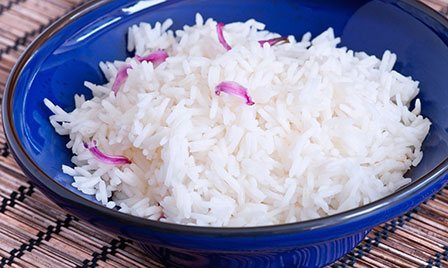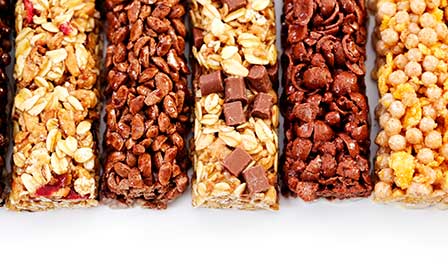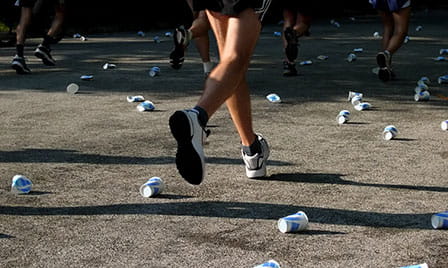
MOVE
10 tips for avoiding the porta potty before the big race
Posted May 25, 2015
Minnesota racing season is in full stride. You'd be hard pressed not to find a 5k, marathon, duathlon or triathlon on any given weekend, including some big races just around the corner like the Minneapolis Marathon and Grandma's Marathon.
If you've participated in a race before, you've likely experienced the uncomfortable feeling of pre-race gastrointestinal distress (a.k.a. runners trots, bum slosher, trotsies) and want to avoid it again. Luckily with a little planning that starts during your training, you can avoid the trots and minimize time spent in the porta potty.
- Food training. It's important to practice eating during your training. Experiment with different foods, quantities and the time of day that you eat, and then listen to how your body responds during your training. Keeping a food journal can help with this process.
- Avoid high-fiber foods. High-fiber foods pass quickly through the intestines, so it is best to avoid them 24 hours before a race. Stick to easily digested carbs, think potatoes and white rice, which tend to produce less bloating and GI upset than a big bowl of pasta.
- Watch the timing. Minimize stomach discomfort by eating big meals three to four hours before training to allow for digestion. Eliminate shock to your body by training your body to wake up at the same time you intend to wake up on race day.
- Limit sweeteners. Check the labels of your energy bars and gels for hidden sweeteners like sorbitol, mannitol and anything ending in "-ol." Take energy gels with water, not a sports drink, which adds even more sugar and can overload your GI tract.
- Graze the day before. Try eating carbs and protein in increments throughout the day before a race, instead of a huge bowl of pasta the night before.
- Fuel by ketones from fat. Many elite endurance athletes are finding that fat burning is much more efficient and longer lasting than sugar burning. This will circumvent the need for pre-race carb loading and race day GI distress. The documentary "Cereal Killers II: Run on Fat" is a good introduction to learn more about this way of fueling your body.
- Drink plenty of fluids. Dehydration plays as big of a role in GI distress as what you eat. Drink plenty of fluids to stay hydrated. Ideally an athlete's urine should be near clear.
- Hold the caffeine. Coffee and tea can help move things through your system but limit your intake to one eight ounce serving. When takin in large amounts caffeine may trigger complaints in your GI tract.
- Relax. Nerves contribute as much to race day GI distress as what you eat. Give yourself plenty of time to get ready on race day so you aren't rushing out the door.
- Stay positive. Visualizing yourself having fun and reaching your goal can help to calm your nerves, as can meditation or relaxing music. Update your play list to include calming or classical music to play before the start line and save Eye of the Tiger for during the race.



The morning of your big race, get up early enough to stimulate a bowel movement. Things that will help include drinking a warm beverage (tea, coffee, hot water) and light exercise. Remember to leave plenty of time to sit on the toilet.
Your body is unique and you may need to experiment with different foods, liquids and training to find a solution that quiets the rumblings. If your guts are unraveling during training and racing, see a doctor. Running can exacerbate conditions like irritable bowel syndrome (IBS), Crohn's disease, ulcerative colitis, lactose intolerance, celiac disease or gluten sensitivity.
-
RunSMART
Get an evaluation
MORE ARTICLES LIKE THIS
Get fun, inspiring, provider-reviewed articles sent to your inbox.
Sign up for our email newsletter




